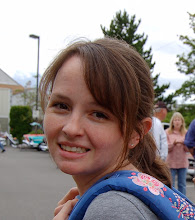How Cerebral Palsy is Diagnosed
I found a great article that lists what a diagnostic team is looking for when making the diagnosis of cerebral palsy. The main points are:
How is the Diagnosis of Cerebral Palsy Made? When an infant or child has brain damage, a variety of symptoms can lead doctors and parents to suspect that something is wrong. In the first few months of life, an infant with brain damage may demonstrate some or all of the following symptoms:
* Lethargy, or lack of alertness
* Irritability or fussiness
* Abnormal, high-pitched cry
* Trembling of the arms and legs
* Poor feeding abilities secondary to problems sucking and swallowing
* Low muscle tone
* Abnormal posture, such as the child favoring one side of their body
* Seizures, staring spells, eye fluttering, body twitching
* Abnormal reflexes.
During the first six months of life, other signs of brain injury may also appear in an infants muscle tone and posture. These signs include:
* Muscle tone may change gradually from low tone to high tone; a baby may go from floppy to very stiff.
* The child may hold his or her hand in tight fists.
* There may be asymmetries of movement, that is, one side of the body may move more easily and freely than the other side.
* The infant may feed poorly, with their tongue pushing food out of their mouth forcefully.
Once a baby with brain damage reaches six months of age, it usually becomes quite apparent that he or she is picking up movement skills slower than normal. Infants with cerebral palsy are more often slow to reach certain developmental milestones, such as rolling over, sitting up, crawling, walking and talking. Parents are more likely to notice these developmental delays and abnormal behaviors, especially if this is not their first child. Sometimes when they express their concerns to their physicians, their child is immediately diagnosed as having cerebral palsy. More often, however, medical professionals hesitate to use the term "cerebral palsy"at first. Instead, they may use broader terms such as:
* Developmental delay, which means that a child is slower than normal to develop movement skills such as rolling over and sitting up
* Neuromotor dysfunction, or delay in the maturation of the nervous system
* Motor disability, indicating a long term movement problem
* Central nervous system dysfunction, which is a general term to indicate the brain's improper functioning
* Static encephalopathy, meaning abnormal brain function that is not getting worse.


No comments:
Post a Comment